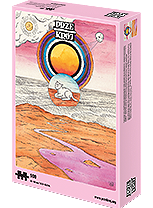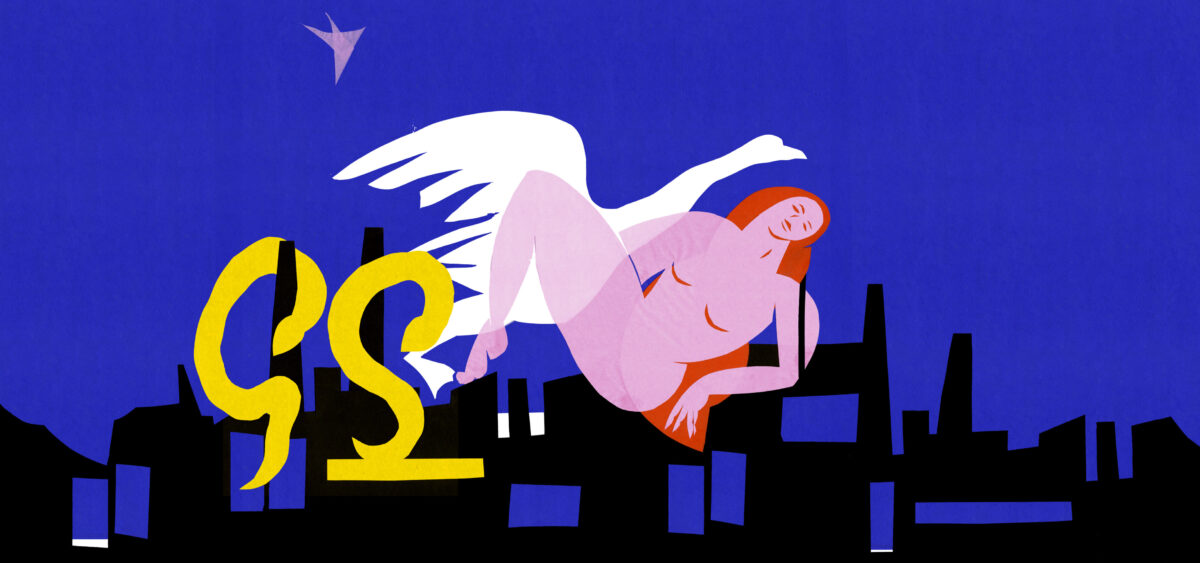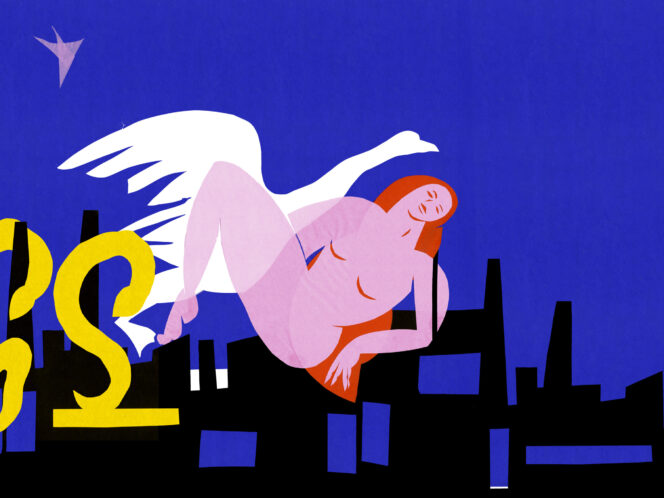
Vitta, the owner of a fashionable café serving super healthy Bionature cocktails and lactose-free yoghurts with a mousse of alfalfa shoots, doesn’t feel too good these days. But what is this feeling that’s making him so sick? Could it have anything to do with Leda? And who is she really?
The pleasure is all mine…
‘Kra, kra.’ ‘????’ ‘Kra, kra, kra.’
‘Kra, kra, kra.’ That’s what I’m hearing, though there’s no ‘k’ or ‘r’ or ‘a’ in any of what it’s saying, nor indeed any kind of sound that could emerge from my mouth, from my highly sophisticated speech apparatus. Sophisticated. I turn the word over again in my mind and, for no reason at all, I think of flowers. I make the effort, I contort my face, I torment my huge meaty tongue, but all I get is: ‘kra’ and ‘kra’.
Or nothing.
I lie down on the grass, on a spot where there just happens to be no dog shit. It’s cold. Half-decayed leaves stick to me; they coat my clothes with a layer of slippery rust. Neither time of year nor day counts here. Always the same blue-grey light, moping grass and all that dog shit in various stages of decomposition. When the sun goes out, the street lamps go on. When it’s not raining, it’s packed with people. I hear the echoes of the city in the background; whisperings, rustlings, murmurings and sirens, gathered into one great hypnotic song. A song. It’s more than the sum of particular sounds: it’s pure resounding, resonance all in itself, a mysterious tone which no notation can capture. I’m lying here and an empty plastic bag labelled ORGANIC MARKET floats past above my head. I blink. It’s time to go.
Leda was never any bother. She was never late for work. She didn’t leave early. She didn’t have bad days. She didn’t grumble when the last customers sat over empty glasses long past closing time, which meant she couldn’t enter the takings. She carried out every duty without a word of complaint, even the ones which fell beyond that call. She mopped the tiled floor, polished glasses until they shone as though cut from the finest crystal, filled sugar-bowls with low-calorie sweetener. All the same, Leda was not that popular in Green Soya. And decidedly not with Vitta, the owner. Basically, he would have been happy to get rid of her under any pretext. Leda made him anxious, even repelled him. He didn’t like coming near her and if, in the evenings after closing time, he happened to be left alone with her in the spreading semi-gloom of the empty café, he’d be overcome by a desire to flee, which he restrained thanks only to the fact that he had an unusually







